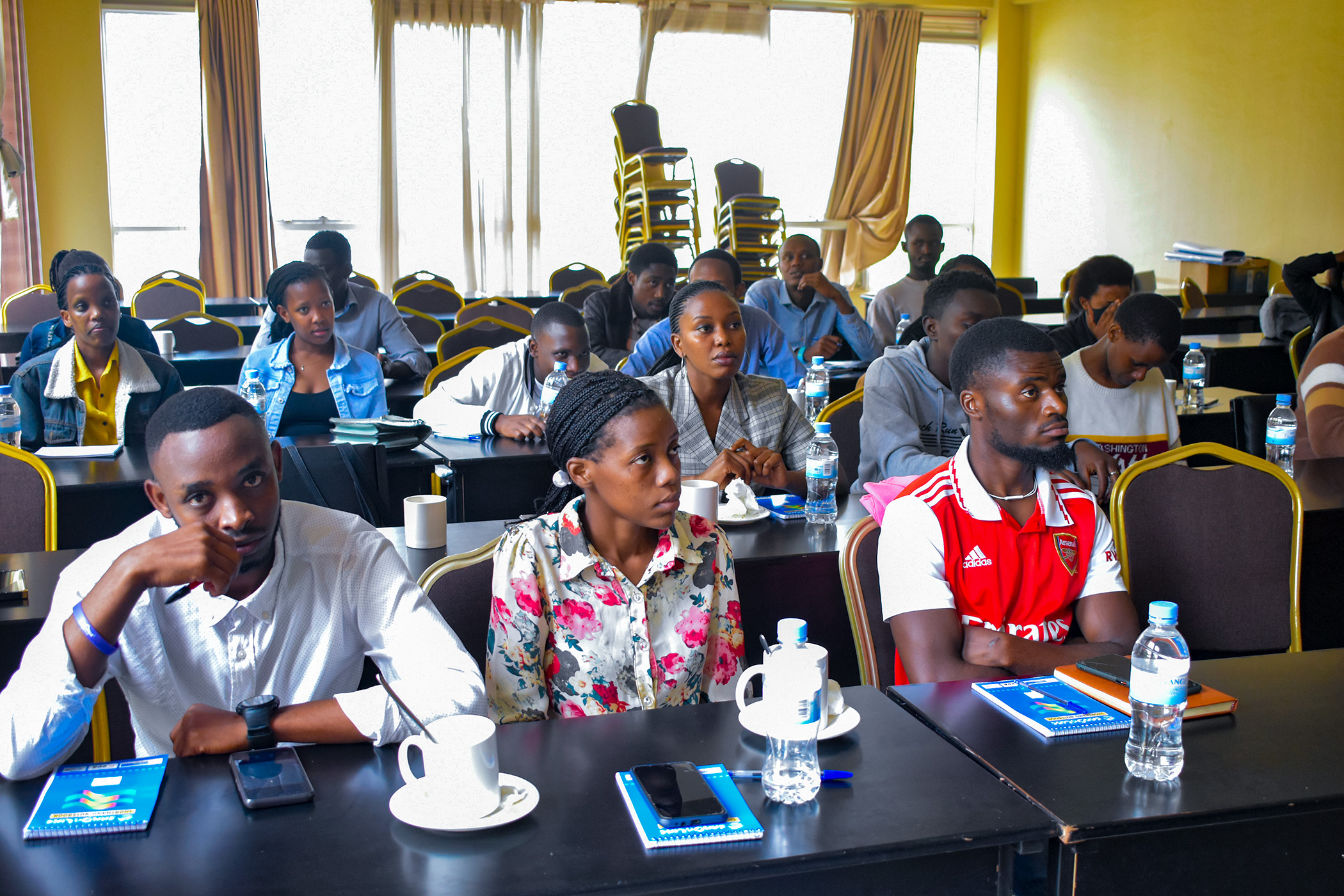“Journalists are not supposed to know everything, but should have an idea on everything”, Assoumani Ntakirutimana-University coordinator RMP(Rwanda Media Programme).
In a bid to strengthen sustainable journalism in Rwanda, FOJO media institute, in partnership with PAXPRESS Rwanda, under Rwanda Media Programme(RMP), continue to provide mentorship to journalists and journalism students in Rwanda and across the Globe.
For a period of three days, a group of twenty five journalism students from MKUR(Mount Kenya University Rwanda) and EAUR(East African University Rwanda), in a training held at MKUR campus in Kicukiro-Kagarama, received facilitation from environmental experts on what their role as future journalists is when it comes to saving mother nature.
Among the facilitators was Sylvie Mugabekazi: CEO- Clean Production and Climate Innovation Center(CPCIC), who took students through the different environmental concepts, Global issues and problems, their causes and how they can be dealt with.
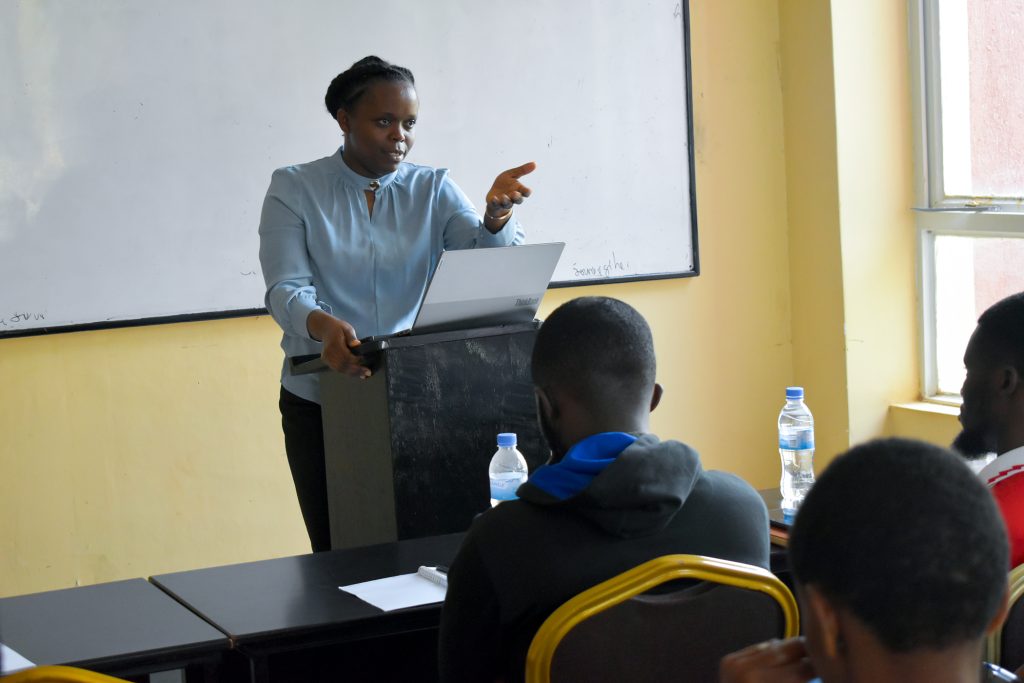
With an experience of over 10 years in environmental science and a Bachelor’s degree in Environmental Chemistry, Sylvie explained eloquently to the students what the environment is, the atmosphere, pollution, how weather is different from climate and what Global warming means and how it comes about.
” Global warming is caused when the sun rays are trapped by the many gases in the atmosphere”, she explained in simple terms.
“Our activities as human beings: farming(animal grazing), cooking with firewood/charcoal and the use of fossil fuels produces gases like carbon dioxide and methane that greatly affect climate change”.
She thus urged the students to play their part in sensitizing masses about the dangers activities like deforestation, driving cars, cooking with fossil fuels, and improper waste management have to the environment and human life.
Sylvie concluded by encouraging the application of a ‘circular economy’ mode of waste management at all levels in Rwanda o reduce on waste production and save the environment.
“If we can’t prevent, let’s reduce, re-use, re-cycle or recover before we can dispose off”, she stated.
Jean D’Amor Mbonyinshuti an editor and environmental journalist at University World News(UWN) ‘spiced’ up the training by sharing with students tips on how to be the ‘best’ environmental journalists there has been.
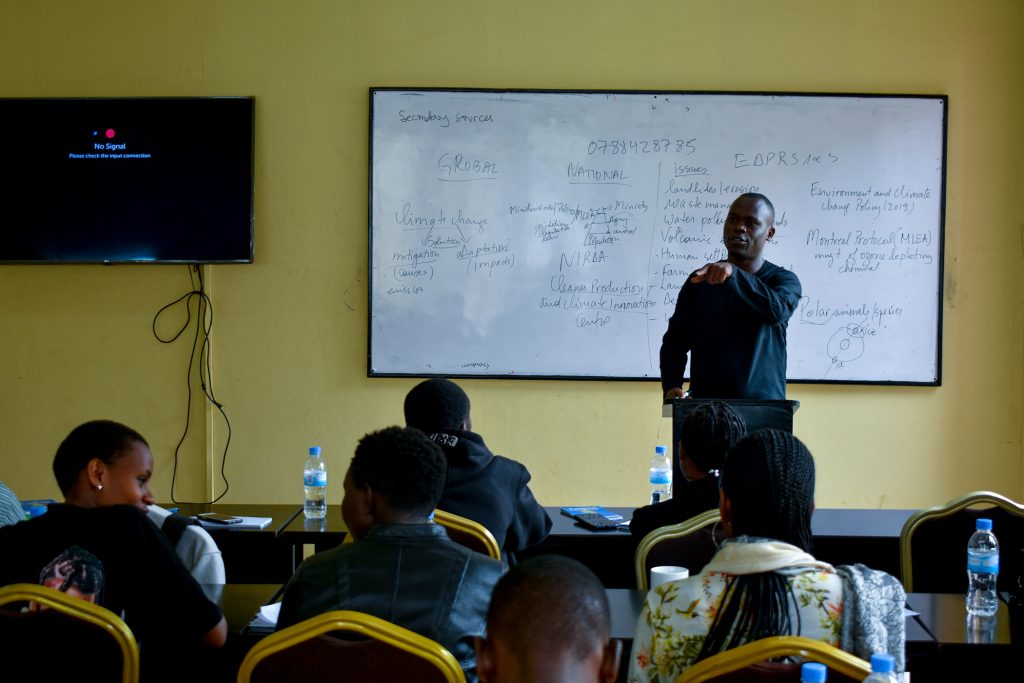
“Journalists have to think Globally and act locally, start from where you are because environmental issues are around you”.
Throughout the facilitation, Jean D’Amor stretched the importance of journalists having ‘facts’ while writing stories. “Don’t assume you know it all, identify the facts, get the units/figures right, ask for details and then explain the scientific terms with a more visual and descriptive tone to the audience”.
He went ahead to guide students on how to ‘pitch’ story ideas related to the environment and the ‘elements’ that should be included in an environmental article.
The training that begun on 20th, March, 2023 and ended on 22nd, March, 2023 had students from the two universities discuss and research about different environmental stories in groups and later presentations about their discoveries.
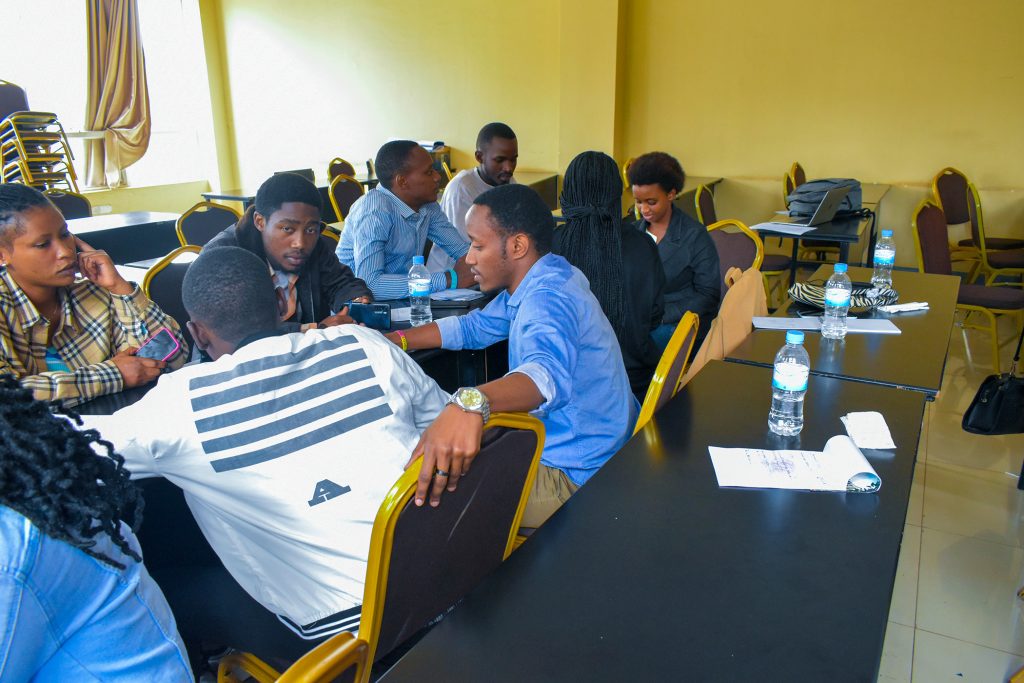
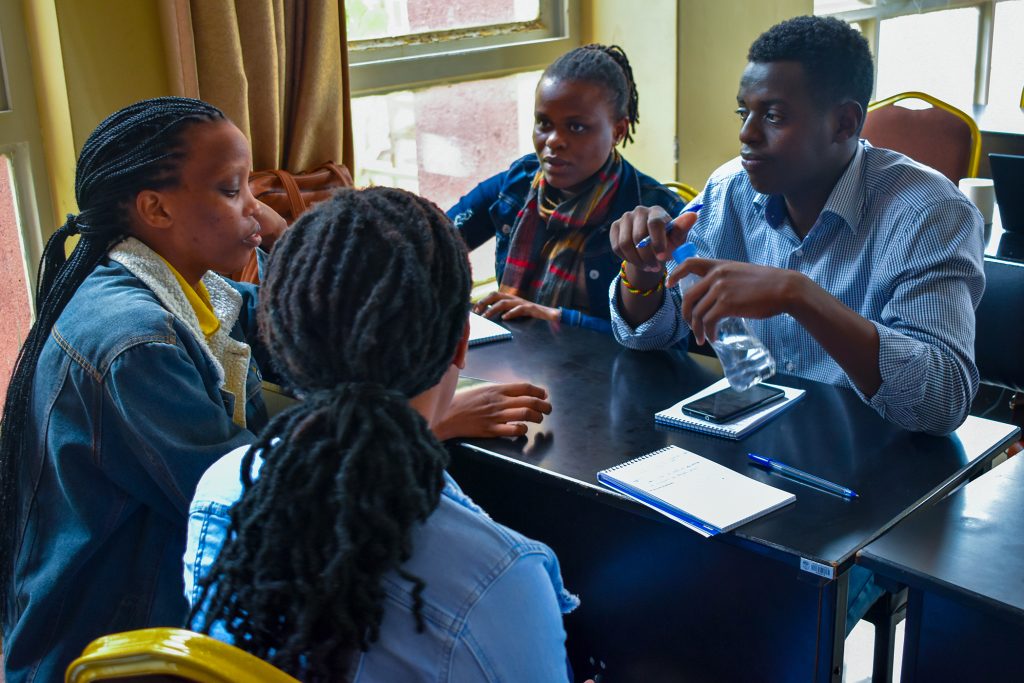
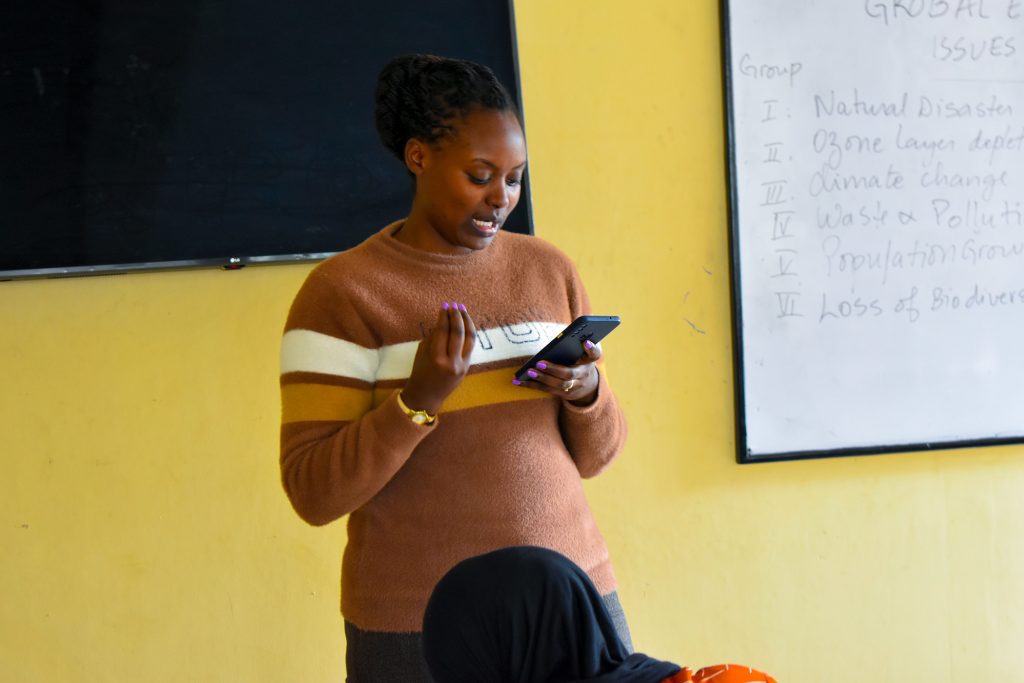
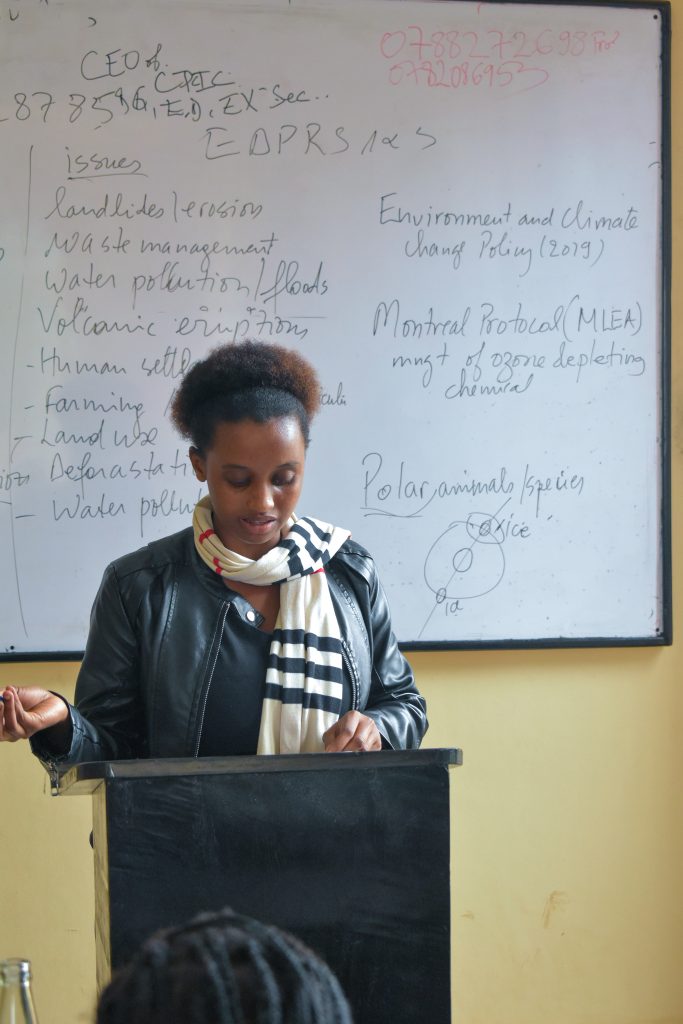
In her report about the overall training, Anna Mbugua a student from EAUR said “this training is the first step towards the success of the environmental club as we will now be able to identify stories related to the environment and pen them down properly”.
Goal 13 of the United Nations Sustainable Goals(SDGs) calls for urgent action to combat climate change and its impacts by 2030 and so far, Rwanda is doing a remarkable job with its ‘green city’, car free days and car free zones aimed at giving the city some hours free from car pollution every month.
In addition, Rwanda has urged its population to use renewable energy(solar systems), is second in Africa to have a state of the art E-waste dismantling and recycling facility among other things.


